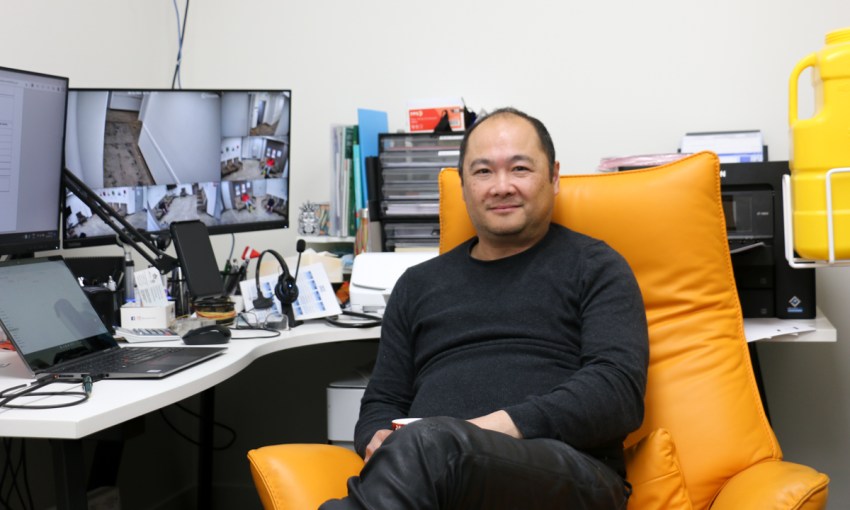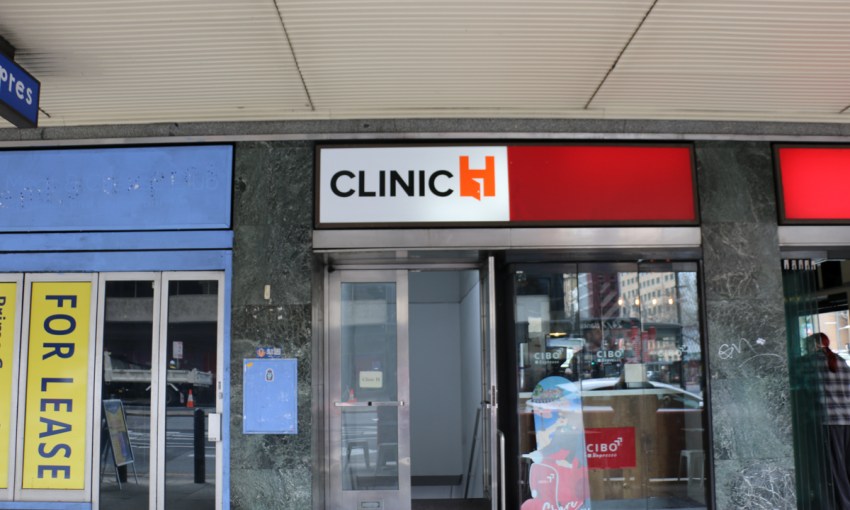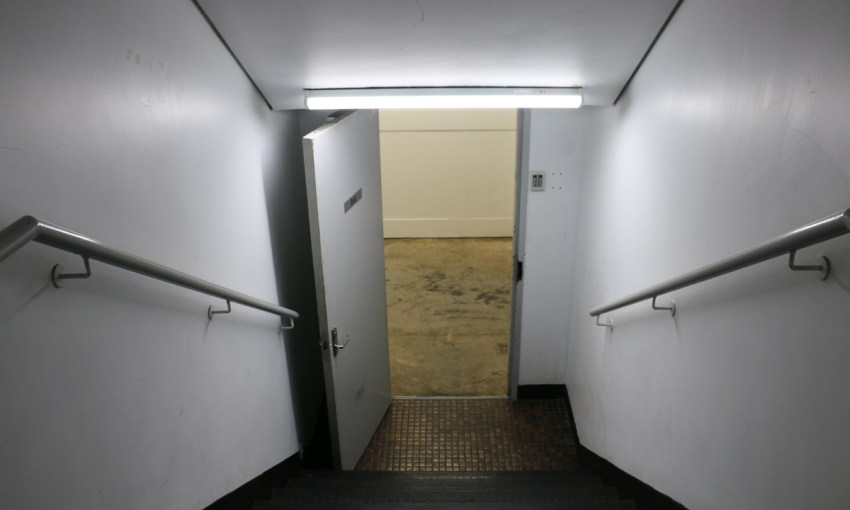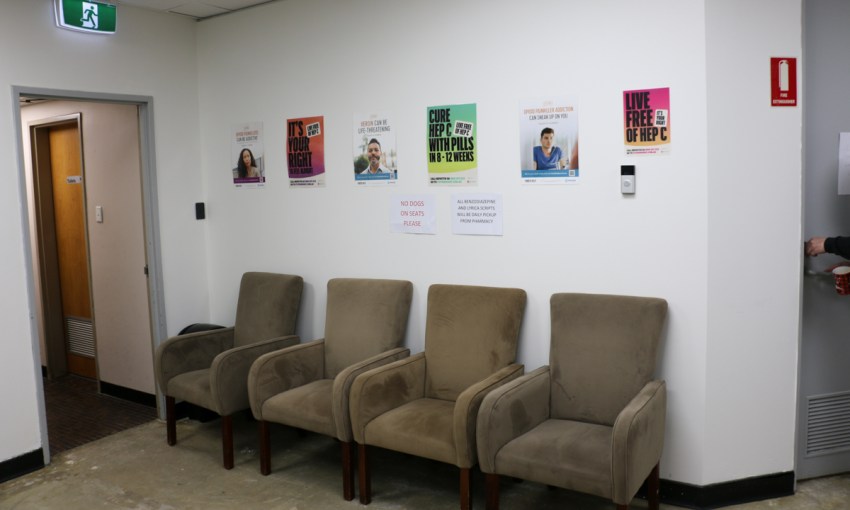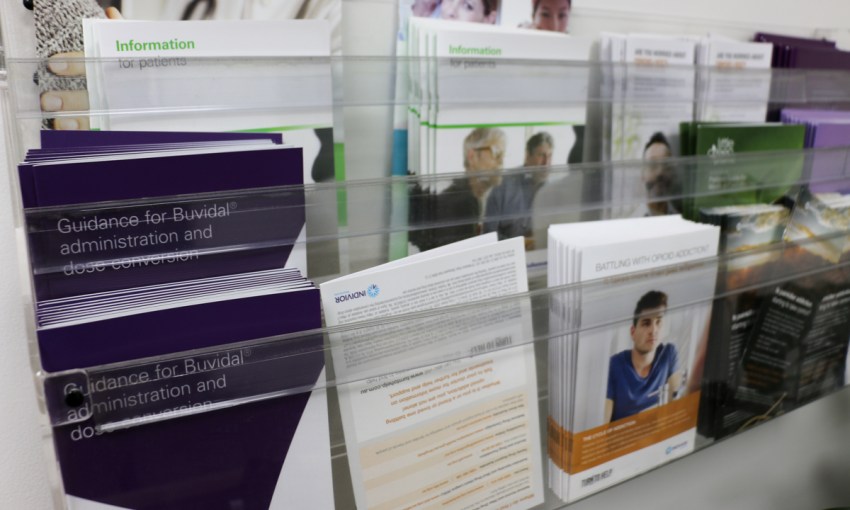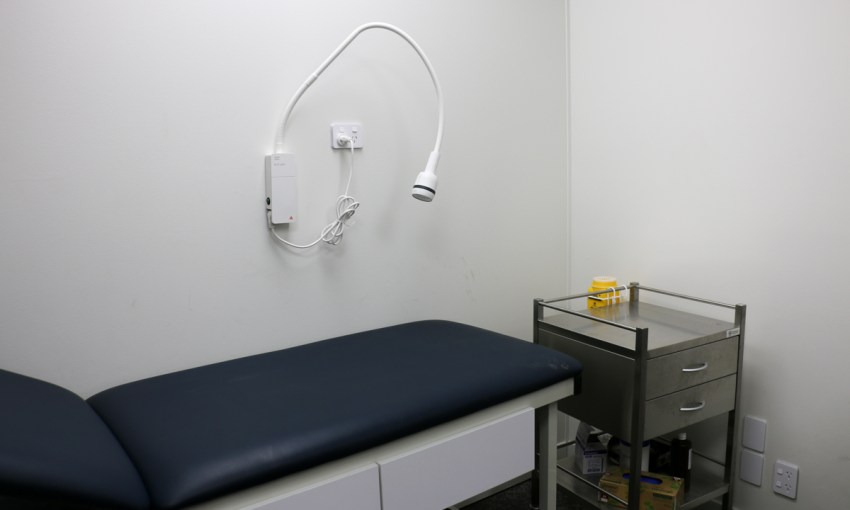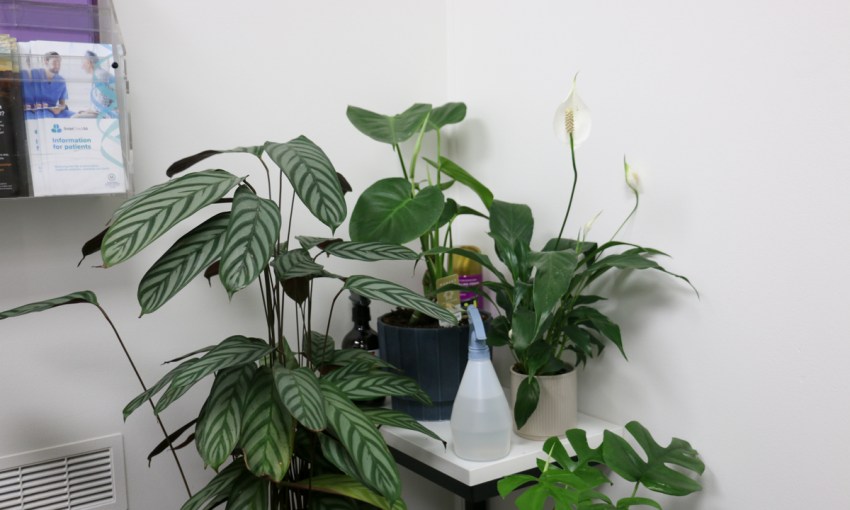Adelaide's heroin consumption reached the highest levels on record last year. From within Clinic H in the city, Dr Benny Tang is helping hundreds of people to stop using the street drug.
Inside the clinic helping heroin users ‘break that cycle’
Over the sound of screeching drills, Dr Benny Tang welcomes CityMag into the conference room of his Grenfell Street basement medical practice, Clinic H. The clinic has been open since May 2021, but the doctor is still settling into the centre – hence the renovations.
Clinic H
82 King William St, Adelaide 5000
(Enter via Grenfell Street)
Mon —Fri: 10am ’til 6pm
More info here
Clinic H has been set up with a narrow focus and is licensed to prescribe methadone and Suboxone, often used to treat opioid addiction.
The ‘H’ in the clinic’s name does not stand for ‘heroin’ or ‘help’, as we first assumed. Benny says it’s shorthand for ‘hope’.
“When they come to see me, they’re sort of desperate and in need of help, and this treatment works really well,” says Benny, a general practitioner of more than 20 years, who sits today in a bright orange chair the same colour as the contaminated waste and sharps bin nearby.
“The treatment is methadone, which is an opiate replacement program, so replacing the heroin with a longer-acting opiate. It’s methadone or buprenorphine.”
The Federal Government regularly tests sewerage across the country for certain illicit and legal substances, with a focus on methylamphetamine and other high-risk drugs. The survey is known as the National Wastewater Drug Monitoring Program and has been running since 2016. A report produced from the study released in August last year found heroin use in South Australia was the “highest on record”.
The state’s chapter of the study monitored four sites across metropolitan Adelaide and five regional sites over a one-month period. The results show that “average heroin consumption increased in both capital and regional sites” compared to the prior reporting period, which was April 2021.
The latest report to come from the program, released in June this year, shows heroin consumption decreased in South Australia, but Benny is still managing a massive caseload at Clinic H – 600 patients, and counting.
“I’ve already got 600 and I’ve heard there are a lot more. Patients tell me their friends are using,” he says.
“There are always patients in here and I can’t take phone calls… and there’s a lot of people that need help but they can’t find it.
“They go see the doctors and the doctors don’t know; they don’t know how to treat these patients.
“This clinic gives them a chance to break that cycle.”
New here? Sign up to receive the latest happenings from around our city, sent every Thursday morning.
Benny says he’s seeing a small increase in those who started using heroin after taking prescription opiates, such as oxycodone. But the majority of his clients are “younger ones” who have just been released from jail.
“Even heroin dealers give their clients my number when they want to get off,” Benny says.
“I’ve got heroin dealers, prison network, Correctional Services, OARS (Offenders Aid and Rehabilitation Services), Sonder, DASSA (Drug and Alcohol Services South Australia).”
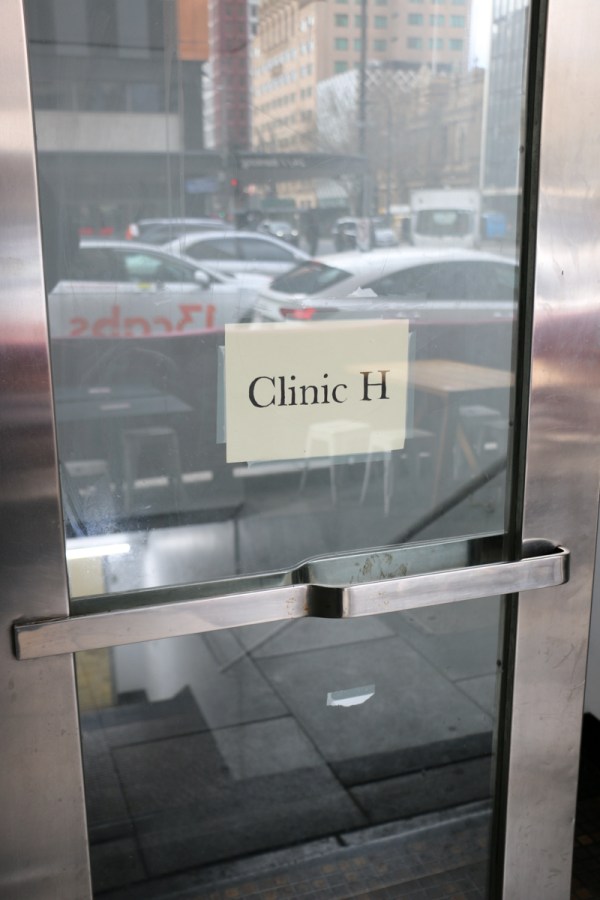
Clinic H
The Midnight Pharmacy – an after-hours pharmacy and health clinic on the corner of Wakefield and Frome Street – also offers substitution heroin medication. Owner Peter Angelo tells CityMag over the phone it’s “not professional” to disclose the number of people who come to his clinic for substitute medication.
The Brian Burdekin Clinic in the city’s west is a general practice clinic also accredited to prescribe certain heroin replacement medications.
CityMag wasn’t successful in speaking to the owner, but a receptionist at the practice says they’ve been “remarkably overwhelmed” in relation to those seeking opiate treatment options.
A spokesperson for DASSA tells CityMag the National Drug Strategy Household Study 2019 showed the number of people “reporting” recent heroin use was “so small” a reliable estimate of the prevalence of heroin use “could not be reported”.
“In Australia and worldwide, opioid substitution is the primary treatment for opioid addiction, including heroin,” the spokesperson says.
“GPs in South Australia can provide prescriptions of opioid substitution medication for patients with opioid dependence to support their recovery.”
Michael White, the executive director of the South Australian Network of Drug and Alcohol Services (SANDAS), says a “lack of funding” and “poor commissioning of services” are barriers for heroin users who might otherwise seek help, and stigma remains a “very significant” challenge.
“In [the] 2015 New Horizons report, it was calculated that roughly 500,000 Australians needed treatment for alcohol and other drug use or dependence,” Michael says.
“At that time, there was funding for approximately 250,000 to receive treatment. If it’s 500,000 [nationally], SA would probably have about 40,000 people requiring treatment.
“We have seen some increases in funding, but it has not doubled. If we do a rough sum on 250,000 (and SA being eight per cent of the population) we should be treating about 20,000 people per year.
“Last year, approximately 11,000 people in SA received treatment, so people who need treatment have difficulty accessing it in a timely manner and often if they are outside the metro area, there is little local treatment available when and where they want and need it.”
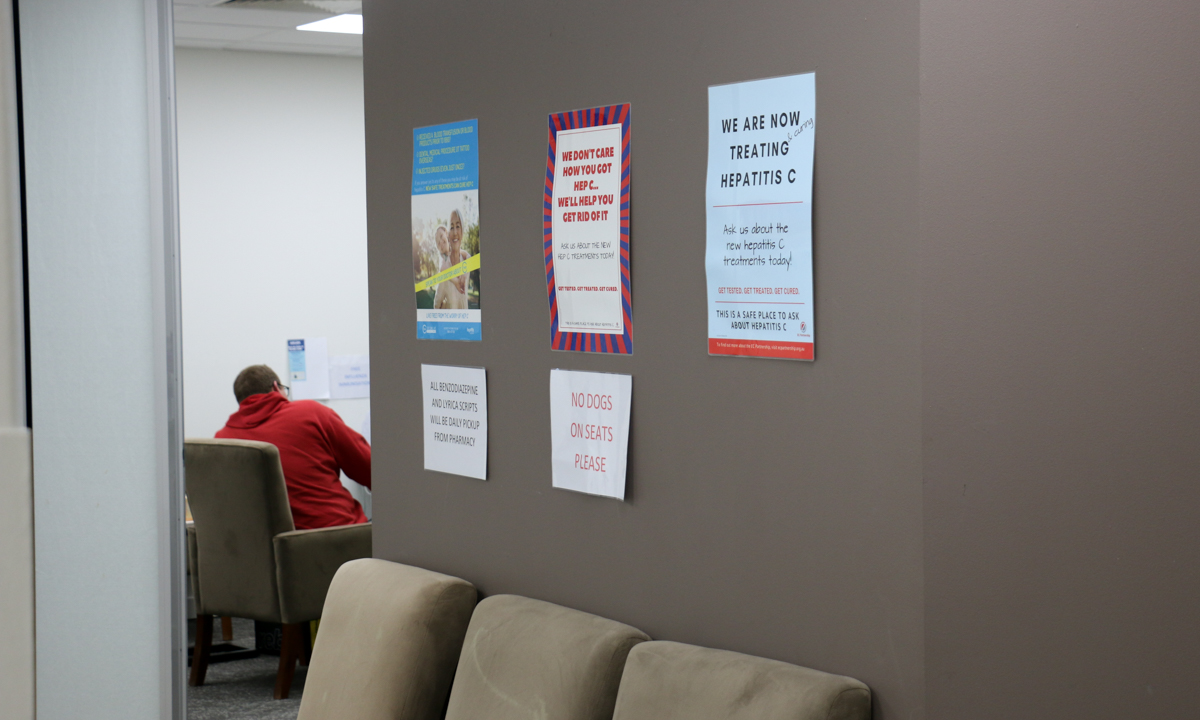
The Clinic H waiting room
Clinic H doesn’t have a waitlist. Benny treats clients as they show up. It’s designed this way, Benny says, to help people at the exact point they’ve decide they need help. Otherwise, they may never get it.
“If you have a waiting list they won’t come back,” Benny says.
“When they make a decision to get on the program, that’s when you need to get them. I’ve had some patients that just don’t come back so you have got to get him straight away.”
Benny estimates at least two more CBD clinics are needed to stem the demand. But clients are not just coming from the inner-city. He estimates 85 per cent of the people he treats are from south of Adelaide.
When we arrive at the clinic, prior to opening, only Benny, CityMag and the tradies are in the facility. By the time we leave, there are three people seated in the waiting room. At another time we visited the clinic, people constantly streamed in and out, waiting for an appointment.
Clinic H has 25 Google reviews, with testimonials saying “if it wasn’t for him (Benny) I would be dead of overdose or jail”, and “Dr Tang has been an absolute life saver for my drug addiction”.
Before we leave, we ask Benny how long he will continue doing this work. “Probably until I retire,” he says. “I’m planning to do this for as long as I can.”
“The work gets simple once you’ve seen the patient and they come back for scripts, with injections when they’re stable.
“Seeing new patients, new clients, that’s also good as well. You get to hear their stories. They tell you things that they’ve never told anyone before – that they first used drugs at 10 years old when their mother injected them or their dad injected them, or their stepdad injected them.
“Then they get [into] a cycle using drugs and then prison, life in and out of prison.
“This is a way for them to get back to normal.”
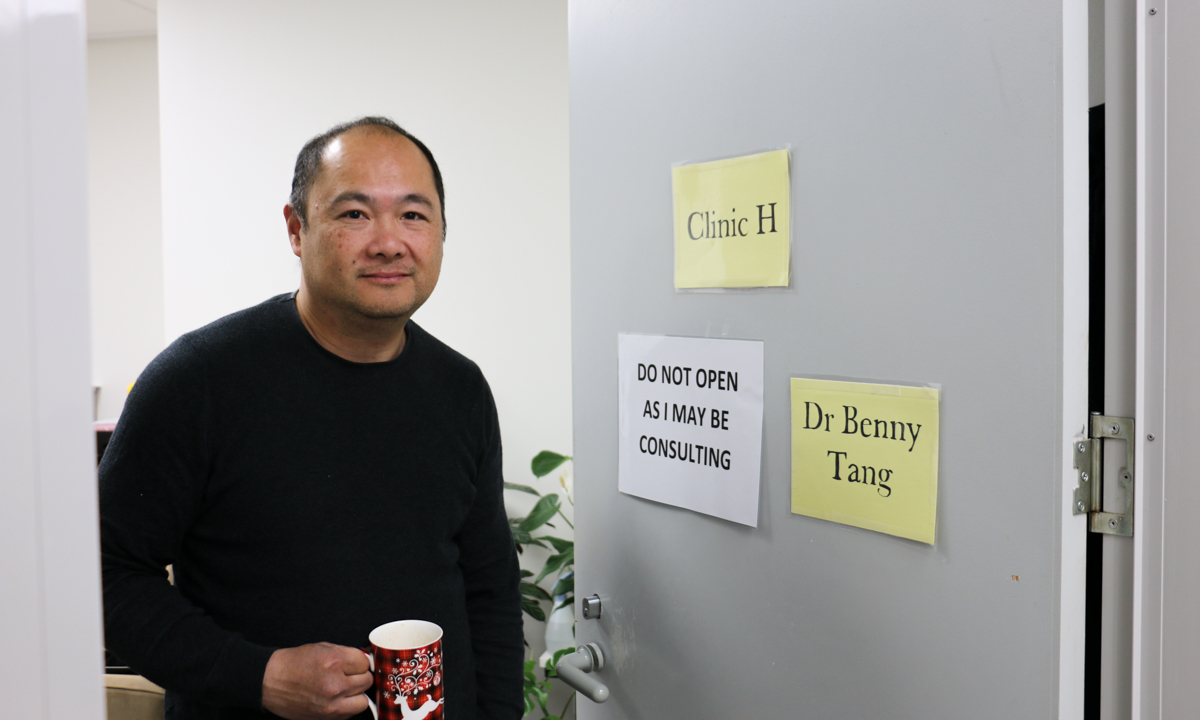
If you are using heroin and need help, call the National Alcohol and Other Drugs Hotline at 1800 250 015. This free service is available 24/7 and offers confidential advice about alcohol and other drugs.



